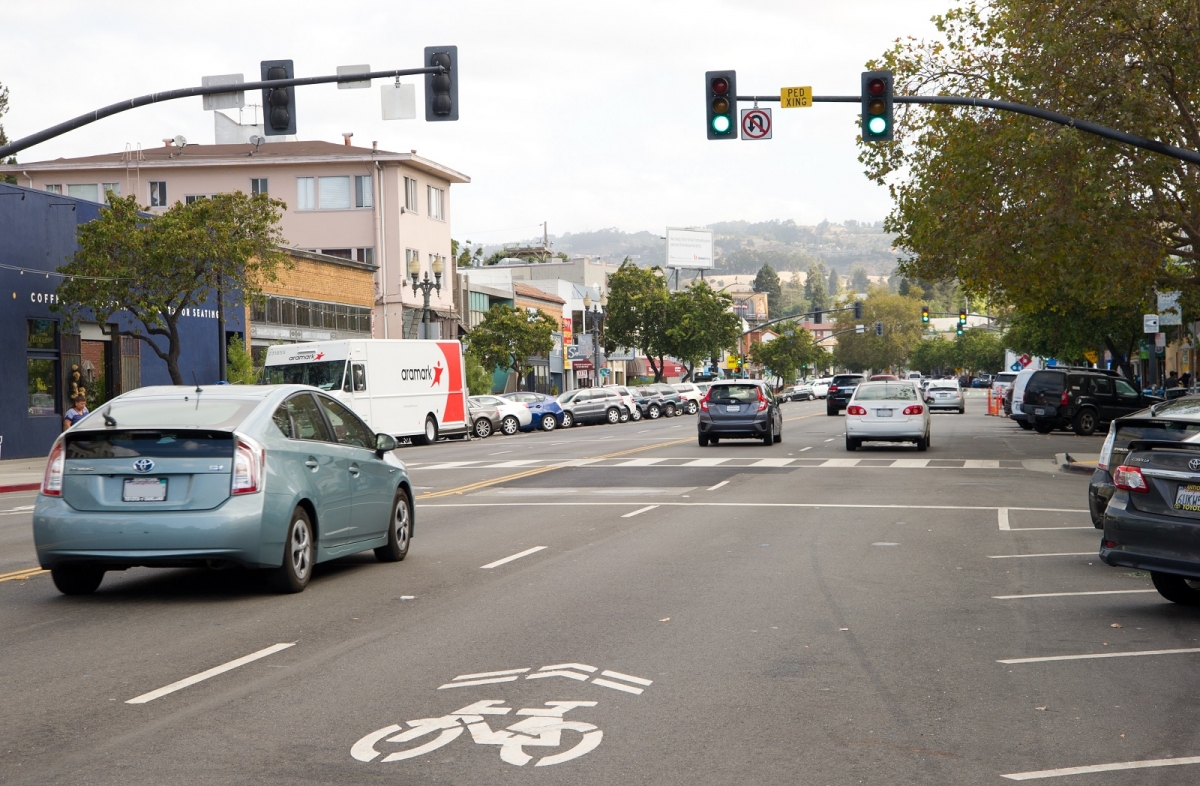Congress continues to debate 2018 federal government spending levels, which must be settled by December. Unfortunately, the House of Representatives has included in its appropriations bill an amendment offered by Rep. Woodall (R-GA) that could be harmful to local control of transportation funding.
The proposed House 2018 appropriations bill includes another $800 million rescission to federal transportation funding, which would require state Departments of Transportation (DOTs) to give unspent money back to the federal government. In the past, those cuts have to be proportional across programs, and money allocated to Metropolitan Planning Organizations (MPOs) to support local transportation priorities was mostly protected from being taken back.

In the name of “flexibility” for state DOTs, the Woodall amendment removes those protections, which would allow state DOTs to take the rescissions indiscriminately out of programs they don’t prioritize—which could include the Transportation Alternatives Program, safety funding, air quality funding, etc. It also would allow state DOTs to raid the MPO money—meaning that MPOs could no longer be assured of being able to actually fund and build projects they chose to implement using federal transportation dollars. This amendment is bad for safety, bad for biking and walking, and bad for local transportation priorities. It is opposed by all the key local government groups, such as the US Conference of Mayors, the National League of Cities, and the Association of Metropolitan Planning Organizations.
This amendment thus far is not a part of Senate conversations on their appropriations bill (neither is the rescission itself), so we have a chance to get it removed from the final deal. We encourage Safe Routes to School advocates to reach out to any local government officials you have a good relationship with – a mayor, a city or county council member, MPO staff, etc – and share with them our fact sheet on the Woodall amendment. Ask them if they will weigh in with their Senators and Representative to ask that the Woodall amendment not be included in the final appropriations package this year.
Elsewhere on Capitol Hill and the Administration, there is news to share:
- The Senate ended its latest attempt to repeal the Affordable Care Act this week. That means for the time being, the Prevention and Public Health Fund, which supports a wide range of health and physical activity initiatives around the country, will continue for the time being. Members of Congress continue to debate whether they should keep working on a repeal, focus on stabilizing the existing health care system, or move on to tax reform.
- On the infrastructure side, Sen. Barrasso (R-WY) is working on an infrastructure package for consideration by the Senate Committee on Environment and Public Works (EPW). The rumored bill is significantly less ambitious than what the Trump administration has been talking about, and is likely to cut back on federal environmental regulations, while also including some new funding for existing transportation programs. It does not appear that the Senate Finance Committee, which would need to find the funding to allow the bill to move forward, is engaged in the process. There may be hearings or movement this fall, or this bill may fade into the woodwork.
- However, President Trump recently indicated he no longer supports public-private investment in infrastructure, which was the entire premise of the Administration’s infrastructure package, so it may well be that Sen. Barasso’s bill is more in line with what is possible.
- On the administration front, USDOT has doubled down on their attempt to strip greenhouse gas (GHG) tracking out of the system performance measure. The Obama administration had originally published a system performance measure rule that included a requirement that state DOTs measure GHG emissions from transportation. When Secretary Chao took over USDOT, she allowed the rule to move forward, except for the GHG portion. A coalition of environmental groups sued. In response, USDOT is temporarily letting the GHG portion of the rule go into effect, and is then repealing it. This is a disappointment, as we’d hoped GHG measurement would encourage DOTs to consider cleaner fuels and investing in modes of transportation that reduce GHGs—such as transit, biking, and walking.
We will continue to monitor federal policy that affects transportation, biking and walking. In the meantime, please talk to your local officials about the Woodall amendment!

